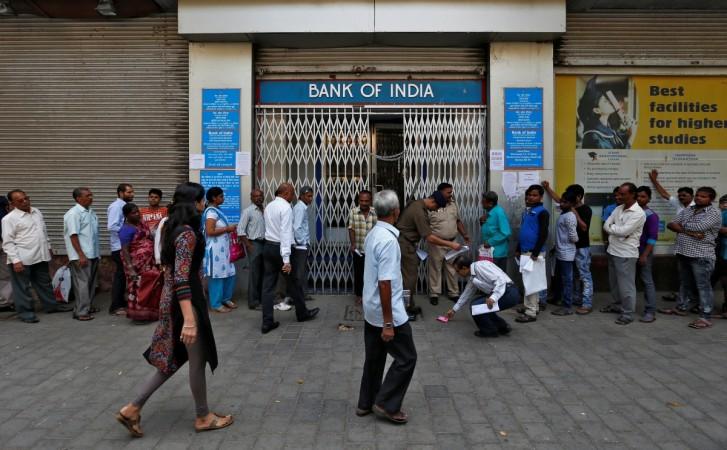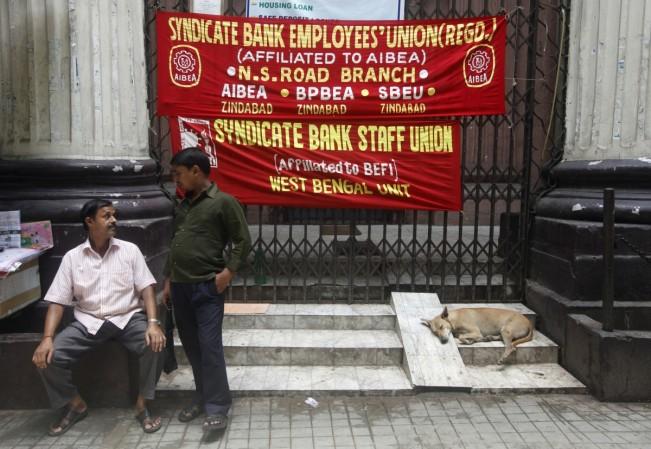
Bank employees in India will conduct a strong protest on Friday, September 15, in a bid to express their resentment towards several economic reforms introduced by the government, according to a Press Trust of India report.
The banking sector wants the government to focus on concerns related to staff shortage in the banking sector, real recovery of Non-Performing Assets (NPAs), the Financial Resolution and Deposit Insurance Bill (FRDI) which will be introduced in Parliament this year, increase of service charges to be payed by depositors and compensation for demonetisation.
The protest will also highlight issues related to India's largest lender State Bank of India, like the merger of associate banks that spurred much confusion like placements for bank officers, office relocation and structural changes based on expansion of new regional offices.
Last month, over 10 lakh bankers working in about 132,000 branches went on a nationwide strike to protest against government reforms in the banking sector and other issues.
Indian banks are very concerned about NPAs on their books created through extension of loans to several defaulting companies. Commercial banks are finding it very difficult to recover these loans.
Tough time for commercial banks
To add to the woes of commercial banks, banking regulator Reserve Bank of India (RBI) last month, sent them a second list of more than 26 defaulters and told them to resolve these accounts through any of the RBI's schemes before December 13, failing which cases would be filed against these companies under the Insolvency and Bankruptcy Code (IBC) at the National Company Law Tribunal (NCLT) before December 31.

The defaulters list mainly included power, telecommunication, steel and infrastructure sectors, a Mint report said.
According to a Fitch report on Tuesday, Indian banks will need additional capital of $65 billion to meet all global Basel III banking rules by March 2019, with state-run lenders accounting for 95 percent of the requirements.
Basel III is a comprehensive set of reform measures developed by the Basel Committee on Banking Supervision to strengthen the regulation, supervision and risk management of the banking sector.
According to reports, the total bad loans of India's 38 listed commercial banks have crossed Rs 8 lakh crore at the end of the June quarter. More than 90 percent of these distressed assets are on the books of government-owned banks.













